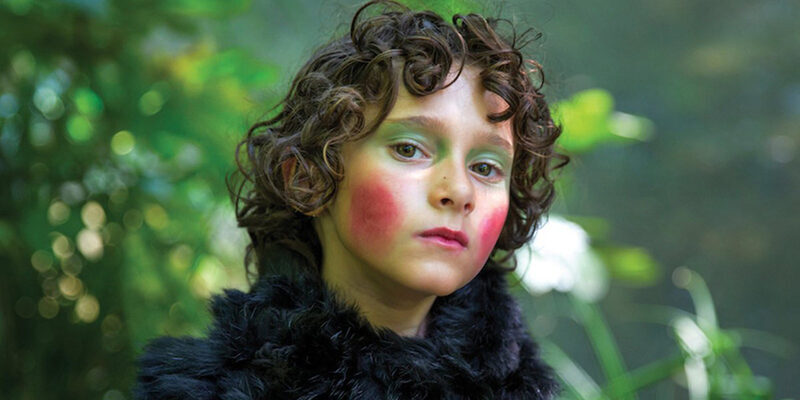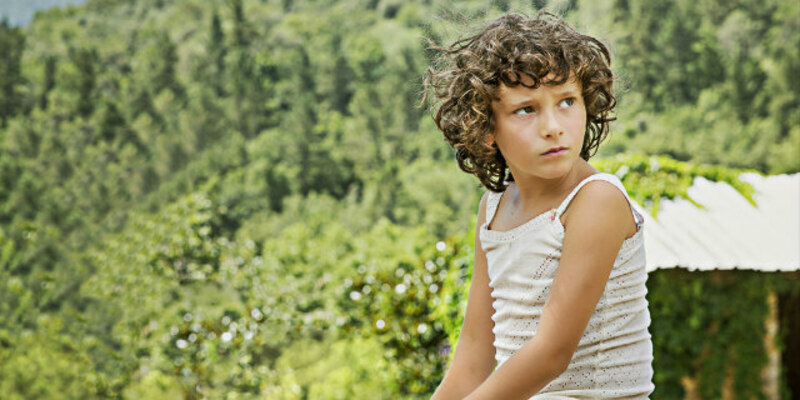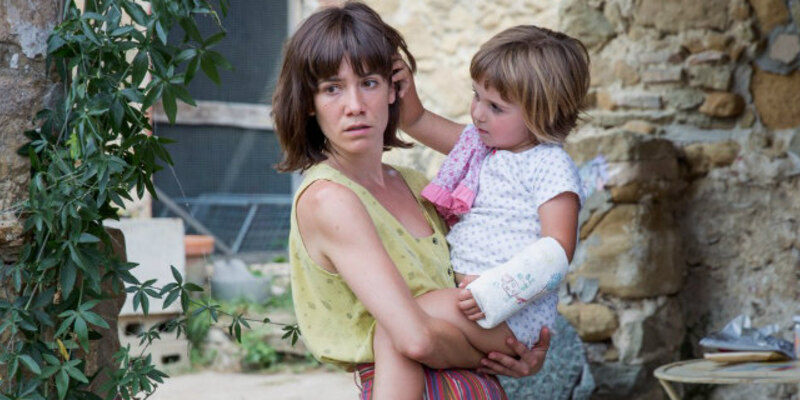
Review by
Eric Hillis
Directed by: Carla Simón
Starring: Laia Artigas, Paula Robles, Bruna Cusí, David
Verdaguer, Fermí Reixach

Over the last few decades, cinema has given us various takes on the AIDS crisis, from true life dramas like Dallas Buyer's Club and 120 Beats Per Minute to allegorical horrors like John Carpenter and David Cronenberg's remakes of The Thing and The Fly. Now Spanish writer/director Carla Simón gives us a new perspective on the crisis in her debut, Summer 1993 - that of a child left orphaned by parents who have succumbed to the virus.
Based somewhat on Simón's own childhood experiences, Summer 1993 sees six-year-old Frida (Laia Artigas) taken from her Barcelona home following the death of her mother and relocated to the rural home of her uncle Esteve (David Verdaguer) and Aunt Marga (Bruna Cusí), becoming an adopted sister of the couple's three-year-old daughter, Anna (Paula Robles).

The horror sub-genre known as body-horror has often employed allegories for AIDS, from Jeff Goldblum's physically deteriorating scientist in The Fly to the alien parasite transmitting itself between human hosts in The Thing. Summer 1993 turns the tables, giving us a reality based AIDS drama that often plays like a body-horror movie in grounded surroundings. Frida is subjected to various tests as doctors make veiled comments regarding her "situation," and in the film's most dramatic moment, the child cuts her knee, causing a friend of her aunt Marga to instantly grab her own kid and retreat in terror. Marga scolds her friend, but while we feel for Frida in the moment, we understand the reaction at a time when misinformation regarding HIV was prevalent.

Artigas might be the acting find of the year. We never feel like we're watching a child star at work, rather like Simón has managed to catch a confused kid going about her business with a hidden camera. Simón doesn't take the easy option of making Frida an easily loveable lass; rather she's a petulant tyke, and her spoilt brat ways allude to her mother's hedonistic nature. Her interactions with her new younger sister Anna are emotionally cruel at times, like when she commands the younger girl not to play with any of her toys. At one point her behaviour around Anna threatens to take a dark turn and send the film into Bad Seed territory.


Summer 1993 is on MUBI UK now.
